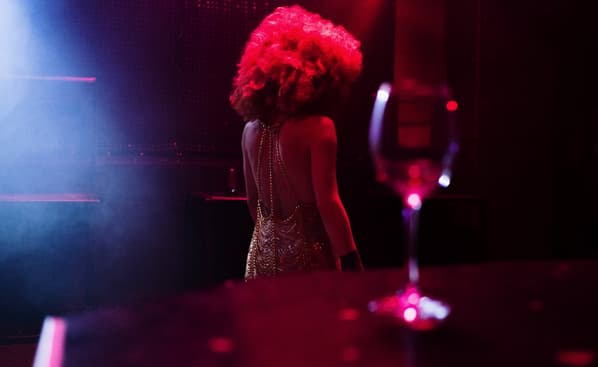When you hear the word showbiz, your mind probably drifts to dazzling red carpets, flashing cameras, and celebrity scandals. But behind the glitz and glamour is a complex, ever-evolving industry that blends creativity, commerce, and culture. From Hollywood blockbusters to indie productions, music festivals to talent shows, showbiz has long captured the hearts and minds of audiences around the globe.
Showbiz—short for “show business”—encompasses all forms of entertainment, including film, television, theater, music, and more. It’s a world where dreams are made, stars are born, and cultural moments are crafted. But while it’s exciting on the surface, it’s also an industry filled with challenges, reinvention, and a constant battle for relevance. Let’s dive deeper into the spotlight and explore what really makes the entertainment world tick.
The Evolution of Entertainment: From Stage to Screen
Showbiz has ancient roots. Thousands of years ago, live performances were already captivating crowds—from Greek tragedies to Roman amphitheaters. But it wasn’t until the 20th century that entertainment began to take on the form we recognize today. The invention of film, followed by television, revolutionized how people consumed content. Suddenly, a single performance could reach millions of viewers, and the idea of a “global superstar” was born.
Hollywood became the beating heart of showbiz, drawing talent from around the world. The golden age of cinema in the 1930s and ’40s gave rise to iconic stars like Marilyn Monroe, Humphrey Bogart, and Audrey Hepburn. Meanwhile, Broadway boomed in New York, offering a home to live theater and musical masterpieces.
Then came television, opening a new frontier. Sitcoms, dramas, and reality TV soon became staples of everyday life. By the time the internet and streaming services like Netflix and YouTube emerged, the rules of the game changed again—this time, forever. Now anyone with talent and a smartphone could potentially make it big.
Showbiz isn’t just about acting or singing anymore. Today’s stars are multi-hyphenates—actors who direct, singers who produce, influencers who create their own media empires. The modern showbiz landscape is bigger, faster, and more diverse than ever before.
Fame, Fortune, and the Pressure Behind the Curtain
The showbiz lifestyle is often portrayed as glamorous: luxury cars, designer outfits, exclusive parties. And sure, success in entertainment can bring fame and fortune. But what many fans don’t see is the pressure that comes with living in the spotlight.
For every A-list celebrity, there are thousands of struggling artists trying to break into the industry. The competition is fierce, rejection is constant, and the mental toll can be significant. Even successful stars often deal with scrutiny, gossip, and the ever-present fear of being “canceled” or fading into irrelevance.
Social media has intensified this pressure. While it offers a platform for self-promotion, it also makes celebrities more accessible—and vulnerable—than ever before. A single tweet can spark a scandal. A viral video can define a career. And fans now expect transparency and authenticity in addition to talent.
Behind the scenes, producers, directors, agents, and crews work tirelessly to bring entertainment to life. The logistics of putting on a concert, filming a movie, or running a talk show are mind-blowing. And yet, when done right, it all looks effortless to the audience.
Mental health awareness is finally gaining traction in the industry, with many stars speaking out about anxiety, burnout, and depression. There’s a growing recognition that success in showbiz shouldn’t come at the cost of personal well-being.

Diversity, Representation, and the Power of Pop Culture
In recent years, showbiz has undergone a cultural reckoning. Audiences are demanding more diversity, better representation, and more inclusive storytelling. And the industry—slowly but surely—is responding.
Films like Black Panther, Crazy Rich Asians, and Everything Everywhere All at Once have shown that diverse casts and stories can be both critically acclaimed and commercially successful. Movements like #OscarsSoWhite and #MeToo have challenged the status quo, pushing for more accountability and equity within the industry.
Streaming platforms have helped amplify voices that were previously marginalized. International shows like Squid Game and Money Heist have achieved worldwide fame, proving that language is no longer a barrier to success. TikTok and Instagram Reels have turned unknown performers into household names overnight.
The power of pop culture extends beyond entertainment—it shapes trends, fuels social conversations, and even influences politics. A hit song can become an anthem for a generation. A film can change how people see the world. And a single performance can inspire millions.
In this sense, showbiz is not just a mirror reflecting society—it’s a force that helps shape it.
Conclusion: The Future of Showbiz
The showbiz industry is at a crossroads. Traditional studios are competing with streaming giants. AI and virtual reality are opening new creative possibilities. And audiences are more empowered than ever, choosing what they want to watch, when, and how.
But one thing remains unchanged: the human craving for stories, connection, and emotion. Whether it’s a live concert that gives you goosebumps, a movie that makes you cry, or a comedy skit that makes you laugh out loud, showbiz has the power to move us.
As long as there are stories to tell and dreams to chase, the lights of showbiz will never dim. It will continue to evolve, adapt, and dazzle—bringing joy, meaning, and magic to people around the world.
So the next time you binge a series, sing along to a chart-topping hit, or sit in awe at a performance, remember: you’re not just watching entertainment. You’re experiencing a piece of showbiz history.

